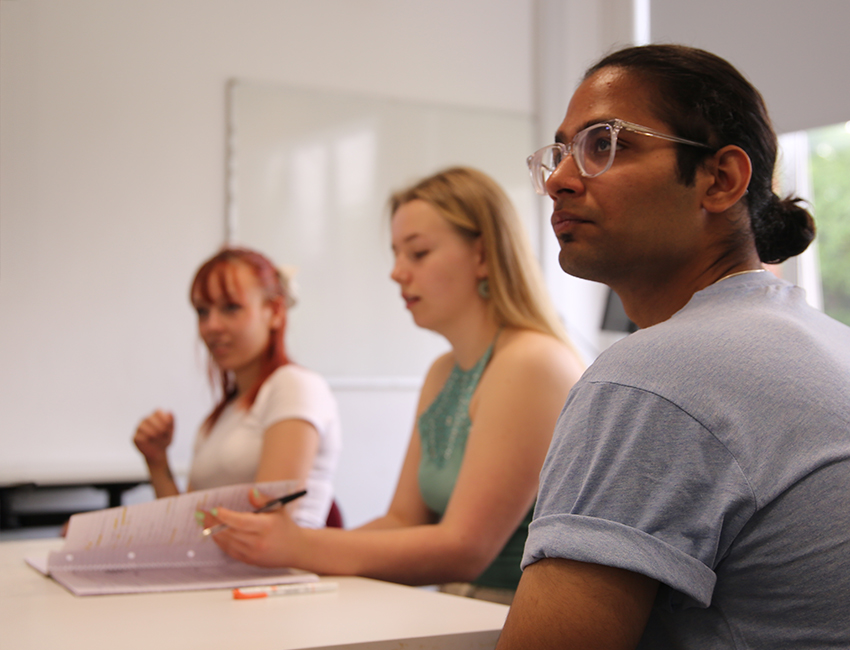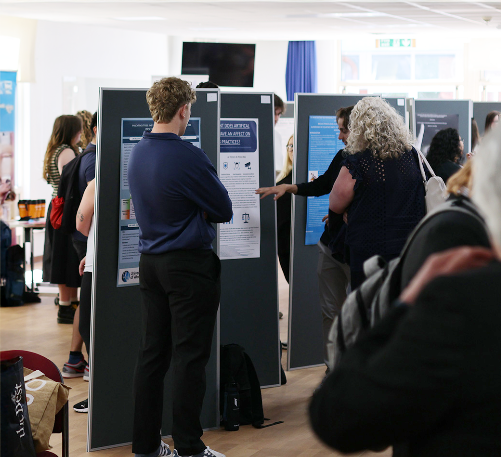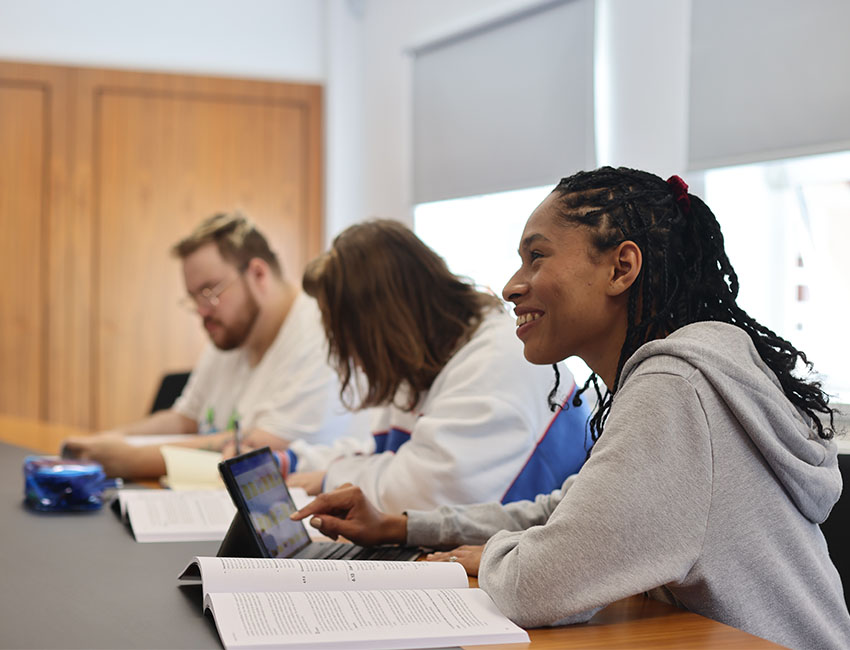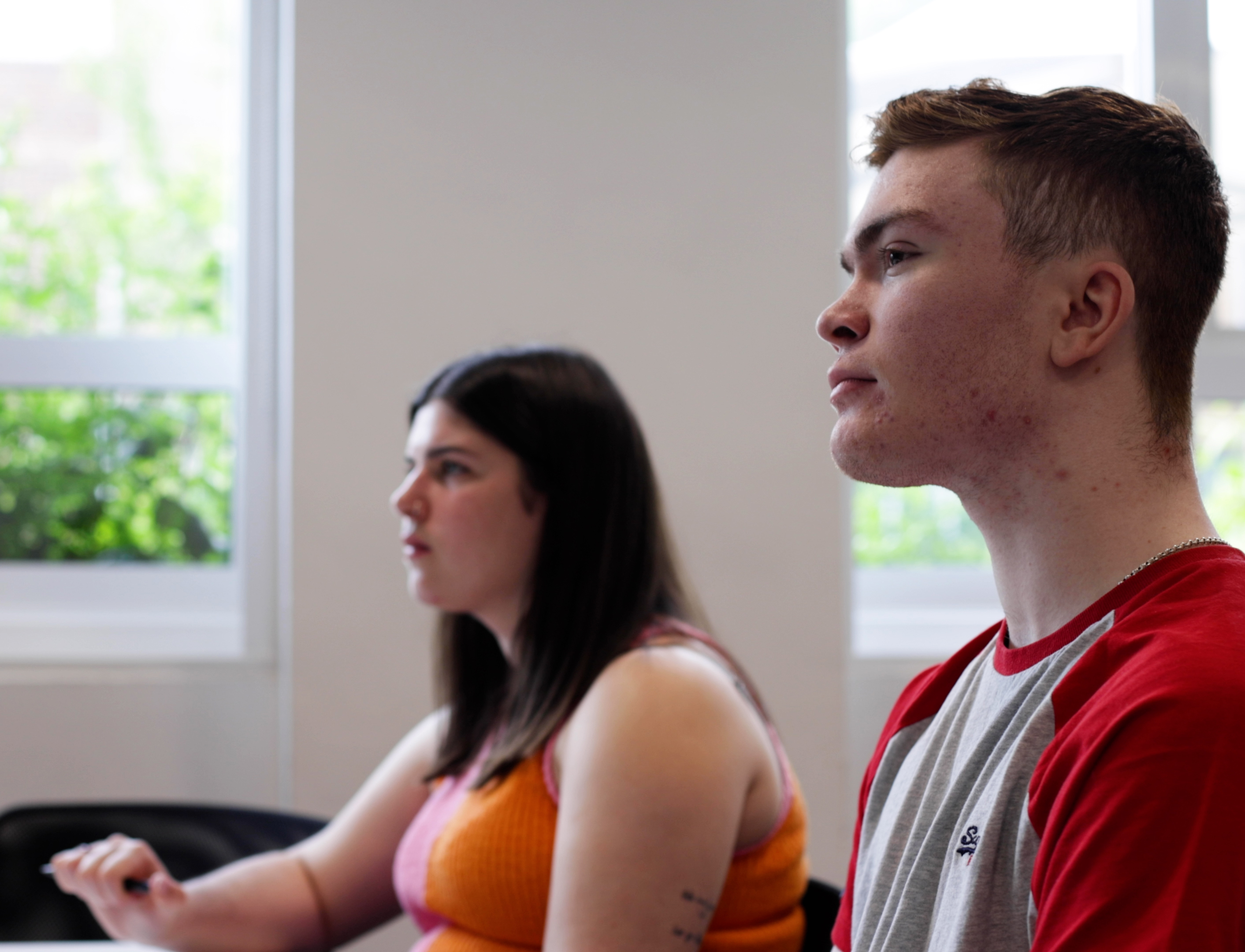At Worcester, you'll explore how broader social factors influence crime, learn from industry professionals, guest speakers with industry experience, those who have experienced the justice system and gain the knowledge and practical experience needed to make a meaningful difference in your chosen career.
for Student Experience in the UK, within Sociology
for Criminology teaching quality
University of the Year finalist
Recognised for our graduate success, we’re shortlisted for University of the Year in the Times Higher Education Awards 2025.
Overview
What drives crime in society and how do we respond to it? On our Criminology and Sociology degree, you'll be encouraged to explore how social and economic conditions can influence criminal behaviour and how political decisions can impact the justice system.
You’ll delve into the wider social issues that shape everyday life, from race, gender and class to debates around technology, the environment and social change. You'll focus on social scientific explanations for crime, victimisation and deviance and look at the responses to these crimes by societies and individuals. By combining these two subjects, you’ll gain a richer understanding of how society works which you can then apply to a wide variety of careers.
You’ll investigate the causes and consequences of crime, not just through laws and policies, but through the lived experiences of individuals and communities. Hearing about these will help you connect theory to real-world situations, build empathy, and gain a deeper understanding of the subject.
Guest speakers from a range of professions such as the Prison Service, Crown Prosecution Service (CPS) and Ministry of Justice deliver talks. You'll also hear from those who have perpetrated or experienced crimes in our society. These talks highlight different challenges, good practices and solutions for a complex system and field of study.
Our graduates work with a range of community-based organisations and client groups to ensure their learning in the classroom can be applied to a range of professional settings. Whether you want to influence policy, support vulnerable groups, or lead change in your community, Criminology and Sociology at Worcester gives you the foundation to make a meaningful impact.
Work experience
Work experience is a key feature of this degree, with multiple opportunities available throughout your studies to help you build real-world skills and professional confidence. From your first year, the Sociology in Practice module introduces career planning and applied learning, laying the foundation for future development.
As you progress, you’ll have access to a work-based learning module in your third year, alongside a variety of events held throughout the academic year. Students frequently engage with professionals from across the criminal justice system, third sector, and other relevant industries, gaining valuable insights into the workplace.
Organised visits to courts, prisons, and Parliament, as well as extracurricular activities like research conferences and guest lectures, further enrich your experience, helping you graduate with a strong understanding of the workplace and a competitive edge in your chosen field.
Why Criminology at Worcester?
Course Content
We regularly review our courses to reflect the latest research and developments in the subject area, as well as feedback from students, employers and the wider sector. As a result, modules may change to ensure the course remains current and relevant.
Optional modules will run if enough students choose to study them. It is not guaranteed that all modules will be offered every year.
Careers
From your first year, we help you plan for your future career through our Sociology in Practice module. You’ll gain valuable hands-on experience via placements and practical projects, and have opportunities to meet professionals working in the field. Guest speakers from the police, prison, and probation services regularly visit, and employers from across the country attend our Criminology Careers Fair, ensuring you graduate with real-world insights and a competitive edge.
This degree is designed to equip you with the analytical, research and communication skills which are highly valued across the criminal justice system, non-profit organisation and beyond. Whether you are drawn to frontline roles or social policy, this course opens doors to a wide spectrum of careers.
This degree could be the first step toward your career as a:
- Rehabilitation worker
- Crime analyst
- Prison offender manager
- Police officer
- Charity officer
- Youth worker
- Community development worker
At Worcester you can also specialise further with our Applied Criminology MA. You also can train to teach with a one-year Primary or Secondary PGCE at Worcester.
Course highlights
Teaching and Assessment
Teaching will be delivered through a combination of guided lectures, independent study and one-to-one tutoring sessions.
There are no exams on this course, instead we focus on building your research and communication skills through essays, consultancy projects, case study analyses and presentations.
Teaching and assessment contents
You will be taught through a dynamic combination of learning and teaching methods designed to foster both academic achievement and lifelong learning. Across Criminology and Sociology, lectures introduce key topics using both traditional and contemporary sources, laying the foundation for deeper exploration. These are complemented by interactive seminars and student-led discussions that encourage critical thinking and the development of subject-specific understanding.
Practical classes and workshops focus on applying theory to real-world contexts, helping you build essential skills. In Criminology, experiential learning is a core component, with problem-based learning activities that challenge you to address global issues, such as the role of policing in knife crime or perspectives on victimology and offending. Sociology similarly emphasises independent research and assessment writing, supported by close tutor guidance to help you become a confident, self-directed learner.
Research-informed teaching is central to both disciplines, embedded in group activities, assessments, and problem-solving tasks. A specialised work-based learning module in Criminology offers the chance to build a portfolio of employability-focused experiences. You’ll also benefit from extra-curricular CPD workshops and careers-focused events, supported by professionals such as the Police Crime Commissioner, magistrates, and local detectives. Strong links with courts and prisons provide unique learning opportunities beyond the classroom.
Meet the team
A small selection of the Criminology and Sociology lecturers who teach on this course.
Entry requirements
UCAS tariff points required: 112
| Qualification | Grade |
|---|---|
| A-level | BBC |
| BTEC National Extended Diploma | DMM |
| T-level | Merit |
We do accept Access to HE Diplomas and other qualifications which may not exactly match the combinations above. Work out your estimated points with the UCAS tariff calculator.
Any questions?
If you have any questions about entry requirements, please call our Admissions Office on 01905 855111 or email admissions@worc.ac.uk.
Fees
Fees contents
UK and EU students
In 2026/27 the standard fee for full-time home and EU undergraduate students on BA/BSc/LLB degrees and FdA/FdSc degrees is £9,535 per year (subject to changes in the government tuition fee cap).
Tuition fees are reviewed annually and may increase each year for both new and continuing students.
For more details on course fees, please visit our course fees page.
International students
In 2026/27 the standard tuition fee for full-time international students enrolling on BA/BSc/LLB degrees and FdA/FdSc degrees is £17,200 per year.
Tuition fees are reviewed annually and may increase each year for both new and continuing students.
For more details on course fees, please visit our course fees page.
How to apply
How to apply contents
Applying through UCAS
UCAS is the central organisation through which applications are processed for full-time undergraduate courses in the UK.
Read our how to apply pages for more information on the application process, or if you’d like to apply for part-time study.
Criminology and Sociology BA (Hons) - L301
Contact
If you have any questions, please get in touch. We're here to help you every step of the way.


Admissions Office
admissions@worc.ac.uk01905 855111More to explore
Accommodation
Benefit from our accommodation guarantee. We have rooms on campus to suit every budget including en-suite options.

Support for mature students
Are you over the age of 21? Discover the support we offer.

Open Days
Visiting us is the best way to get a feel for student life at the University of Worcester.












